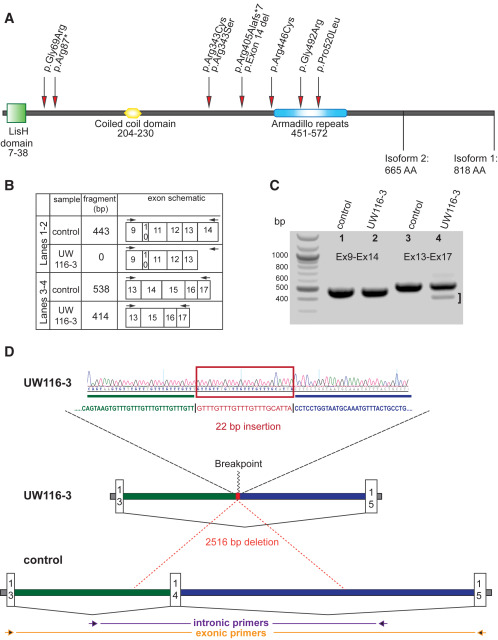Joubert syndrome (JS) is a recessive neurodevelopmental disorder characterized by hypotonia, ataxia, abnormal eye movements, and variable cognitive impairment. It is defined by a distinctive brain malformation known as the "molar tooth sign" on axial MRI. In Jul 6, 2017, Julie C. Van De Weghe and others published an article in << AJHG >> which title is“Mutations in ARMC9, which Encodes a Basal Body Protein, Cause Joubert Syndrome in Humans and Ciliopathy Phenotypes in Zebrafish”. In this work, they identify biallelic rare, predicted-deleterious ARMC9 variants (stop-gain, missense, splice-site, and single-exon deletion) in 11 individuals with JS from 8 families, accounting for approximately 1% of the disorder. Identifying ARMC9 mutations as a cause of JS takes they one step closer to a full genetic understanding of this important disorder and enables future functional work to define the central biological mechanisms underlying JS and other ciliopathies.
Read More
Full Research Progress
